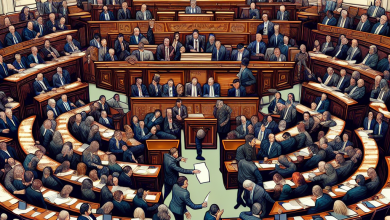Republicans Forge Ahead with Crypto Legislation Despite Democratic Opposition
Overview
Cryptocurrency regulation is a hot topic in the U.S. Congress, with Democrats and Republicans locking horns over proposed legislation. House Financial Services Committee member Maxine Waters and Stephen Lynch, aiming to oppose Republican-led bills set for fast-track consideration.
Waters expresses concern that these bills might lack essential consumer protections, potentially exposing the U.S. financial system to new risks. She accuses the Republicans of pushing through legislation that could have significant implications without proper scrutiny, even likening it to being complicit in former President Trump’s alleged crypto schemes.
The legislative package in question consists of three key bills: the GENIUS Act, the CLARITY Act, and the Anti-CBDC Surveillance State Act. While the GENIUS Act, focusing on payment stablecoins, has Senate approval, the fate of the other two bills remains uncertain.
Democrats worry that these bills might favor the crypto industry at the expense of consumer safety. They fear that shifting regulatory authority from the Securities and Exchange Commission (SEC) to the Commodity Futures Trading Commission (CFTC) could weaken oversight, leaving potential gaps for exploitation.
Moreover, Trump’s ties to the crypto space add another layer of complexity to the debate. Recent reports suggesting a significant rise in his wealth due to investments in crypto-related ventures, including World Liberty Financial, have raised eyebrows. The launch of USD1 stablecoin by this firm has sparked discussions about the blurry line between political influence and financial interests.
In conclusion, the ongoing clash over cryptocurrency regulation in Congress underscores the need for a delicate balance between innovation, consumer protection, and national security. It highlights the challenges of navigating the rapidly evolving crypto landscape while ensuring the integrity of the financial system. The outcome of this debate will have far-reaching implications for the future of digital assets and government oversight in the United States.

